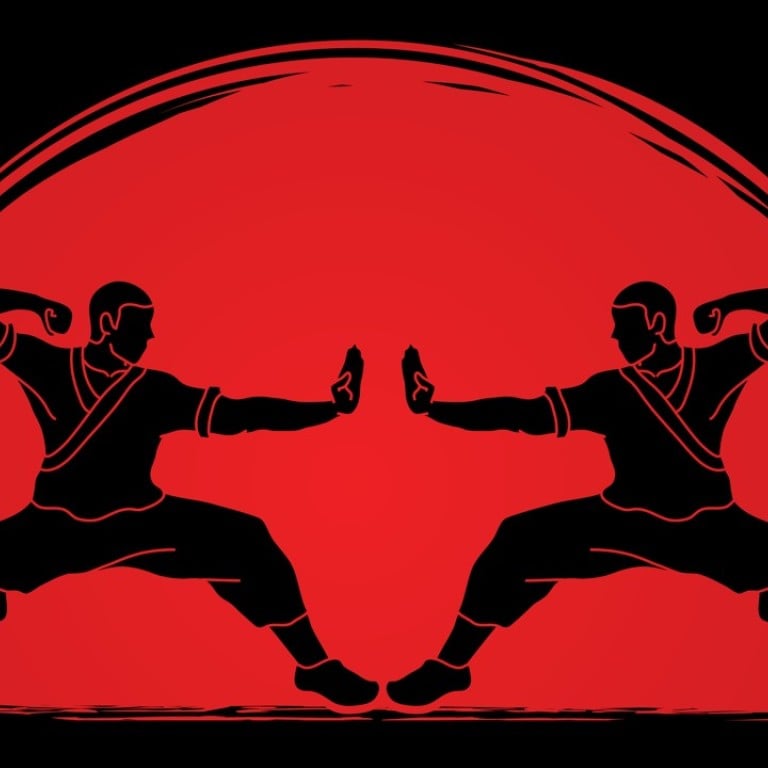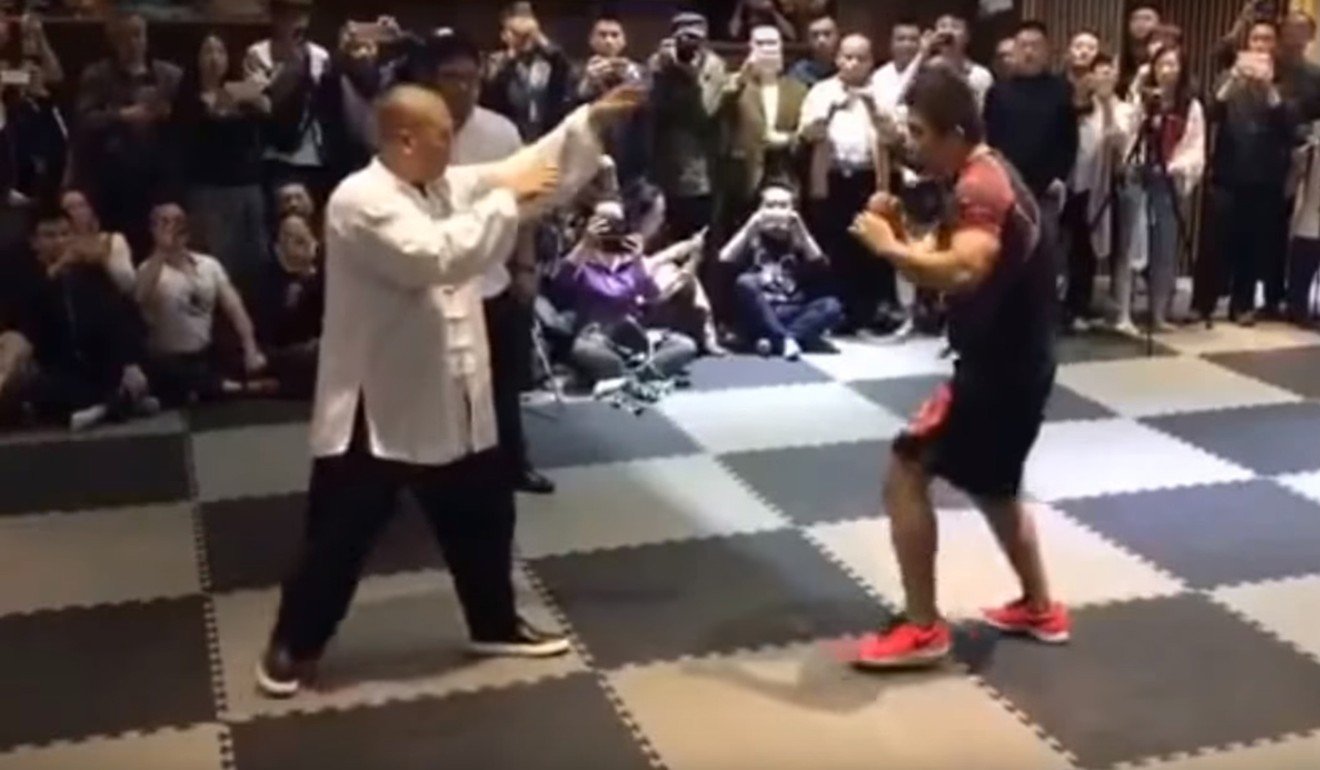
Nobody is kung fu fighting: Chinese martial artists ordered to stop organising their own bouts
Sports authority issues series of orders to kung fu practitioners after tai chi master’s crushing defeat at hands of mixed martial arts fighter
China’s top sporting authority has banned kung fu practitioners from organising unauthorised fights, calling themselves “grandmasters” and creating their own styles.
The directive, issued by the General Administration of Sport on Thursday, bans a total of eight practices and follows an intense debate across the country prompted by the humiliating defeat of a tai chi master by a mixed martial artist in April.
Many questioned the merits of traditional martial arts after the fight, in which the founder of “thunder style” tai chi was defeated within 10 seconds by the MMA fighter.
In the directive, which aims to tighten regulations on martial arts-related activities, the General Administration of Sport said practitioners should “build correct values about martial arts”.
Among the top sins they should avoid were “creating one’s own style, organising a fight without a permit from the authorities, malicious attacks, slandering or discriminating against others”, according to the document.
Claiming to be the “authentic” successor of a particular art was also on the banned list, because the administrators said the practice was misleading the public.
The directive further warned against moneymaking activities such as accepting apprentices, making inappropriate remarks, creating and spreading rumours, as well as fabricating certificates for athletes, coaches and judges.
The government’s intervention in fights between martial artists, a traditionally private activity, raised eyebrows on social media.
“Creating one’s own style of martial art [is banned]? Weren’t all the existing styles created by people? Organising private fights [is also banned]?
“Isn’t competing and finding out their strengths and weaknesses what martial artists should do?” one user commented on the social media platform Weibo.
“It’s just afraid that more kung fu masters will be defeated, isn’t it?” Wang Xu, an online commentator in Beijing, wrote on the microblogging platform.
The defeat of Wei Lei, a tai chi master, at the hands of Xu Xiaodong, an MMA fighter, in April had followed a war of words over which of the two arts was stronger.
Xu, who is known for his provocative comments, had described traditional martial arts as a “farce”.
Wei, who was described by state media as one of China’s greatest tai chi masters, said he wanted to take the fight because Xu had insulted tai chi and “cursed at the ancestors”.

Xu’s comprehensive and swift victory in front of a large crowd in the western city of Chengdu only served to pour fuel on the fire.
His microblogging account was deactivated in light of the attention he had attracted and a new account that appeared to be his was also later blocked, the Beijing Times reported.
Xu later claimed that the officers had been tipped off by a relative of Ma’s in an attempt to sabotage the bout.
Gong Maofu, associate professor from the martial arts school of the Chengdu Sport Institute, said the directive was apparently motivated by a desire to create a better environment but whether it would be truly implemented remained a question as this was only an administrative order.
“It’s very difficult to carry out [these bans]. There’s no legal clause for reference if there’s another fight like that. It’s still unclear who is to supervise this and impose the punishment,” Gong said.
He added that it was meaningless to conclude that Chinese kung fu was weaker than Western martial arts because of a contest between two individuals.
“The result of a fight depends on several factors – who is fighting, how they are fighting, and when,” he said, echoing many internet users’ opinion that Wei was too weak to represent Chinese kung fu.

